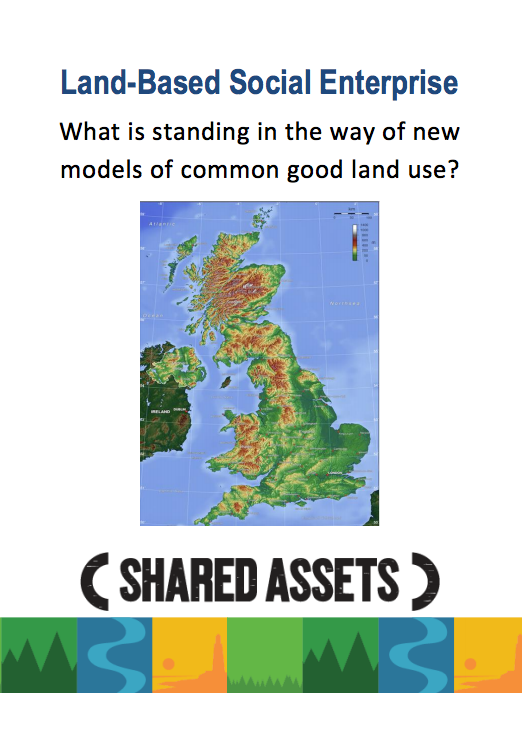ABSTRACTED FROM THE EXECUTIVE SUMMARY: Myanmar’s agricultural sector has for long suffered due to multiplicity of laws and regulations, deficient and degraded infrastructure, poor policies and planning, a chronic lack of credit, and an absence of tenure security for cultivators. These woes negate Myanmar’s bountiful natural endowments and immense agricultural potential, pushing its rural populace towards dire poverty. This review hopes to contribute to the ongoing debate on land issues in Myanmar.
Search results
Showing items 1 through 9 of 151.-
Library ResourceReports & ResearchDecember, 2015Myanmar
-
Library ResourceReports & ResearchDecember, 2009Vietnam
The transition to a market economy has sparked Vietnam's unprecedented urbanization and industrialization. In order to accommodate the spiraling land demand triggered by urban and economic growth, the Vietnamese government has been using the mechanism of compulsory acquisition at an astounding scale to convert massive amount of agricultural land to urban land for non-agricultural uses. A large number of the country's poorest, most vulnerable citizens have been forced out of their land to make way for development projects, yet, they are also the group that have least benefited from them.
-
Library ResourceReports & ResearchDecember, 2009Cambodia
ABSTRACTED FROM THE INTRODUCTION: There is little evidence... that ordinary Cambodians are benefiting from the mass confiscation of their land. On the contrary, those who are displaced are explicitly excluded from any benefits, and instead find themselves facing loss of income, poor health, lack of education and other dire consequences that are directly opposed to the government’s public commitment to development, expressed through targets such as the “Millennium Development Goals” (MDG).
-
Library ResourceReports & ResearchDecember, 2011Cambodia
OVERVIEW: Cambodia is a largely agrarian country that emerged from a history of political strife and instability into a period of steady economic growth. However, the country started from such a low base that even after a decade of growth averaging 7% per annum, GDP is only $650. Cambodia is ranked 176th out of 213 countries in terms of purchasing-power parity. Poverty rates have reduced somewhat, but they remain higher than in most countries in the region and are only slightly lower than in Laos.
-
Library ResourceReports & ResearchDecember, 2013Vietnam
ABSTRACTED FROM THE PREFACE: The origin of this report dates back to 2002, when the first Vietnam Access to Resources Household Survey (VARHS) was carried out.
-
Library ResourceReports & ResearchDecember, 2012Laos
This publication presents the first nationwide analysis of land concessions and leases in the Lao PDR. It comes at a pivotal moment after investment in land has expanded significantly throughout the country, sparking increased dialogue and a greater level of scrutiny regarding the impacts of this expan- sion, both inside the Government of the Lao PDR (GoL) and throughout wider civil society. Investment in land, particularly foreign direct investment, has been championed as an effective development tool by a number of actors.
-
Library ResourceReports & ResearchDecember, 2013Vietnam
As Vietnam continues to search for its ideal balance between Communist control and a market-led economy, land rights emerge at the forefront of the discussion concerning the tension between traditional Socialist ideals of people-owned and state managed property versus neoliberal ideals of private property rights. The purpose of this study is twofold.
-
Library ResourceReports & ResearchDecember, 2015Cambodia
ABSTRACTED FROM THE INTRODUCTION: This working paper is an examination of current land formalization processes against the backdrop of Cambodian history and the political economy of land and agrarian change. I... critique the land property right formalisation processes at play under the current land reforms. I present their rationales, mechanisms and influences on Cambodian peasants. I then detail the dynamics of land differentiation in the central rice plain and reveal how it has initiated a large migration to the peripheral uplands.
-
Library Resource
What is standing in the way of new models of common good land use?
Reports & ResearchSeptember, 2015United KingdomAt Shared Assets we believe that land is a common resource and that it should be made to work for everyone. This means using land to generate social, environmental, and economic value. Mainstream models of land management often fail to deliver social and environmental value, whilst many also require subsidies to be profitable. We need new models of land management, and we believe land-based social enterprises can deliver them.
-
Library ResourceReports & ResearchMay, 2012Vietnam
The policy reforms called for in the
transition from a socialist command economy to a developing
market economy bring both opportunities and risks to a
country's citizens. In poor economies, the initial
focus of reform efforts is naturally the rural sector, which
is where one finds the bulk of the population and almost all
the poor. Economic development will typically entail moving
many rural households out of farming into more remunerative
Land Library Search
Through our robust search engine, you can search for any item of the over 64,800 highly curated resources in the Land Library.
If you would like to find an overview of what is possible, feel free to peruse the Search Guide.



